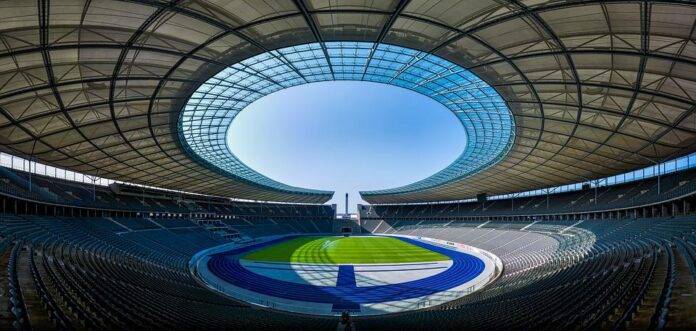AI is making a huge imprint on the field of sports, so it is important to understand its benefits.
If there’s one industry that had previously remained fairly untouched from the technological advancements, it is the sports domain. However, over time the sector is getting introduced with several new generation technologies intended to make it efficient and smart.
We have recently seen a number of technological developments that have impacted sports. Even college sports teams have discovered the benefits of big data and started using it to make stronger cases to potential sponsors.
The sector has reached a market value of $388.3 billion in 2020. As it continues to grow, the introduction of big data technology is helping the physical world expand from real-life person-to-person contact to the virtual esports world. The time when people had to watch a one-sided sporting event is long gone, viewers can now play the game alongside through the mode of esports. They can even enjoy auto-curated highlights packages as the game progresses.
In this article, we are going to look into the two advanced technologies – IoT and AI which have brought some tremendous changes to the sports sector. Let us deep dive into the two technologies and their individual impact on the sports industry.
Role of AI in the Sports Industry
Some skeptics question the benefits of using AI in sports. Here are some good reasons that it is proving beneficial.
A. Recruitment and scouting
When we talk about scouting and recruitment, the role of AI in the sports domain is the same as the role of AI in the business sector.
Sports teams across categories are using players’ performance data as a reference point for potential and making sure players are a good fit. But the performance data used in recruitment goes beyond statistics like goals, home runs, and passes. However, limitations with standard analytical models t can keep them from assessing and recording those metrics. The advent of artificial intelligence and big data in sports management makes the measurement of the metrics a lot easier.
B. Performance and training analysis
To measure sportsperson performance coaches and analysts have to analyze a series of data points in line with collective and individual player performance. It helps them to identify areas where the players excel and the areas which are their weak points.
Artificial Intelligence can be used to derive a correlation between quantitative and qualitative traits and then use the insight to predict players’ qualitative values. The technology can also be used for identifying patterns in the opponents’ strategies while working on games.
C. Streaming and broadcasting
In addition to bringing a revolution of sports for the sport managers and players, artificial intelligence can be used for revolutionizing the live broadcasting system and impacting the way the audience sees the sports event. It can, on the basis of the events on the field choose the camera angles for the viewers’ screens and even provide automatic subtitles for the live events depending on the viewers’ geographical location and language preferences.
While these are just three use cases, the applications of Artificial Intelligence in the sports domain goes beyond these. The fact that AI makes the sector efficient and predictability friendly makes the sector ripe for innovation. We are positive that in the time to come we will see a lot of companies entering the segment with a far greater set of disruptions to offer.
Now that we have looked into the first part of the technological advancement, let us delve into the second new-gen technology bettering the sports industry – the Internet of Things.
Role of IoT in bettering the sports domain
A. Track fans’ behavior
Crowd connectedness even in small stadiums tends to generate a huge amount of data for businesses to gather and use. With thousands of fans using their devices to order a drink, post social media content, or simply to book a cab back home, they give out a massive amount of data that is related to the behavior which companies can use for their benefit. These consumer behavior data can be a great mode to verify the event attendees, market them through the mode of beacon technology, etc.
A use case of this can be that once the fans’ behavior is gathered, the stadium owners can offer them drinks, food, or other necessary items in addition to a discount on season tickets or merchandise. Thus streamlining their experience.
B. Ease in payments
As the attendees purchase merchandise or food and beverages, IoT can help facilitate payments. There will be zero need to carry IDs, cards, and cash through the mode of biometric implementation.
The addition of authentication based tools like biometric for making contactless payments makes the entire process a lot secure and faster. To add to the ease, smart cards equipped with NFC facility can be used for providing a secure, convenient payment experience.
C. Safety
IoT can also improve the visitor screening process in the stadiums. By using it, stadium managers can detect items that are most likely to jeopardize the lives of people who want to see the match. It can also identify most-wanted or dangerous people through the mode of facial recognition technology.
AI is Invaluable to the Field of Sports
The role of AI and IoT in changing the sports industry towards its efficient self is growing to a stage where it is difficult to ignore or solid as a trend. While the article would have given you a snippet of what to expect, there are a number of innovative use cases poised to appear with time.
Link: https://www.smartdatacollective.com/how-internet-of-things-and-ai-will-transform-sports-business/?utm_source=pocket_mylist
Source: https://www.smartdatacollective.com


















